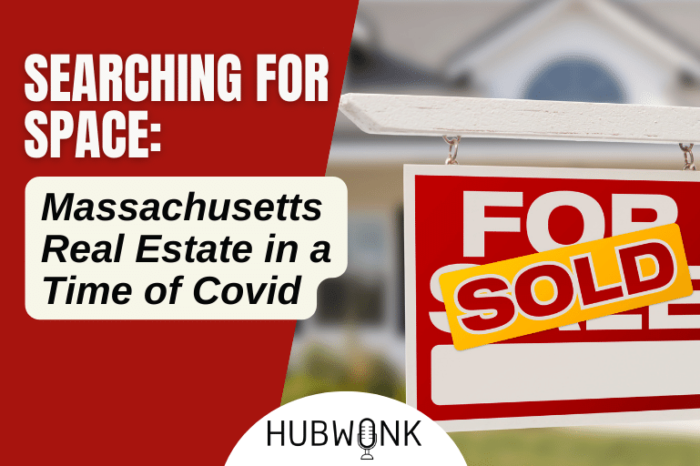Searching For Space: Massachusetts Real Estate in a Time of Covid
/in Economic Opportunity, Featured, Housing, Podcast Hubwonk /by Editorial StaffHubwonk host Joe Selvaggi talks with real estate expert and broker/owner Pauline Donnelly about the disruption and trends created by the Covid-19 pandemic and steps buyers and renters can take to become more informed, prudent, and competitive in the frenzied market of Greater Boston and Martha’s Vineyard.
Guest:
 Pauline Donnelly is real estate expert and broker/owner of Donnelly + Co, a residential real estate firm with offices in Boston and Martha’s Vineyard. Pauline has more than 20 years of experience that includes sales, leadership and management positions, key responsibilities for sales and business growth, and a record of exemplary client service. Pauline has a Bachelor’s degree in Language and Linguistics from the University of York in England, and a Master’s degree in Education from Lesley University in Cambridge, MA. She is a licensed real estate broker in the state of Massachusetts and a member of the Greater Boston Real Estate Board. Pauline is also a Certified Professional Coach through the ICF accredited coach certification program iPEC (Institute for Professional Excellence in Coaching).
Pauline Donnelly is real estate expert and broker/owner of Donnelly + Co, a residential real estate firm with offices in Boston and Martha’s Vineyard. Pauline has more than 20 years of experience that includes sales, leadership and management positions, key responsibilities for sales and business growth, and a record of exemplary client service. Pauline has a Bachelor’s degree in Language and Linguistics from the University of York in England, and a Master’s degree in Education from Lesley University in Cambridge, MA. She is a licensed real estate broker in the state of Massachusetts and a member of the Greater Boston Real Estate Board. Pauline is also a Certified Professional Coach through the ICF accredited coach certification program iPEC (Institute for Professional Excellence in Coaching).
Get new episodes of Hubwonk in your inbox!
WATCH:
Read a Transcript of This Episode
Please excuse typos.
Joe Selvaggi:
This is Hubwonk. I’m Joe Selvaggi
Joe Selvaggi:
Welcome to Hubwonk, a podcast of Pioneer Institute, a think tank in Boston. For more than two years, the COVID pandemic profoundly disrupted every aspect of our lives. Now the least of which was where we wanted to live, asked to stay at home for both work and recreation. Americans naturally became restless and began looking for more space, either in less urban settings or by buying or renting second homes. Unfortunately, this shift in demand for space could not be met with a supply for such homes leading to substantial upward trends in home prices in nearly every market in the country, in Massachusetts, where the cost of homes had already been among the highest in the nation buyers eager to enter or upgrade have seen double digit annual home price appreciation all as the backdrop of rising interest rates, looms in the background. What are those who want to find a home in the base date supposed to do as home prices and rents are slipping beyond their reach?
Joe Selvaggi:
What are the strategies that can offer buyers a better chance at finding a suitable home in a highly competitive market? And what pitfalls should those prospective buyers avoid? When shopping in this frenzied setting? My guest today is Pauline Donnelley real estate expert and broker owner of Donnelley company, a residential real estate firm with offices in Boston and Martha’s vineyard Pauline’s experience of 20 years in Boston. Real estate has seen many market cycles and the 2008 financial crisis, but little prepared her for the shock of the pandemic. Pauline will share with us her experience leading a firm of 30 agents through a pandemic, how the market changed and what she sees as the leading real estate trends. Moving forward, Paul will discuss useful strategies for becoming a more competitive buyer, including the importance of building a team of experts that understands clients’ unique needs to navigate the transaction Hubwonk listeners should also know that Pauline is also my wife, as well as an invaluable supporter of my work as host of Hubwonk. When I return, I’ll be joined by real estate expert and broker owner Pauline Donnelley. Okay. We’re back. This is Hubwonk, I’m Joe Selvaggi, and I’m now pleased to be joined by real estate broker owner and market expert, Pauline Donnelley. Welcome to Hubwonk, Pauline.
Pauline Donnelly:
Thank you, Joe. I’m happy to be here.
Joe Selvaggi:
Okay. Well before we dive into our topic on the state of regional real estate, I’d like to have you share with our listeners, I’ve introduced you as an expert but I’d love to hear how you became an expert, your trajectory from your first time in real estate to where you are today.
Pauline Donnelly:
Sure. so I had personally been involved in many real estate real estate transactions of my own, and always was fascinated by the process and enjoyed the process and decided I took a leap of faith and made a career change and became a real estate agent when I was in my early thirties and just immediately talked to it. I, I was very quickly, very successful. I became a full-time real estate agent. I focused on the beacon hill market in the Boston marketplace and very quickly became the top producing agent in that marketplace. And over the years it sold many, many properties throughout the city of Boston, ultimately was given the opportunity to become a sales manager, which was a fantastic experience for me. Really got to see the real estate industry from the other side of the table. So I learned a great deal about how real estate offices and real estate firms operate.
Pauline Donnelly:
And then I it’s a long story, really how I became a real estate coach, but let me just say it was because I noticed there was a real void in the real estate industry with respect to the support that was given to real estate agents. And I became a certified business coach and started working exclusively. I had for three years, I had my own real estate coaching business and worked exclusively with real estate professionals across the gamut, really. First newly licensed real estate agents. Broker owners like myself now, sales managers, experienced agents, came to me, looking for support and guidance about how to grow their businesses or how to manage their businesses. I did that for three years and then really felt that I was missing out on the, a huge component about the real estate process. I would coach my clients and we would work intensely on a, on a listing presentation and a meeting with a client, and then they would disappear from my coaching office.
Pauline Donnelly:
And I wouldn’t hear from them until they came back to tell me the results of their presentation. And I started to feel like I wanted more and ultimately decided to start my own firm, which I did in 2017. So were in our sixth year decided to open my own firm so that I could be more comprehensively assisting real estate professionals in the development of their business. I am I’m a former teacher. I have a master’s in education and I don’t sell real estate myself anymore. I don’t work directly with buyers and sellers anymore. I am purely in a support role for my agents and for our clients and I’m managing the business. I had two offices and I just found the managing my own real estate firm offered me all the things that I loved about real estate. I’m very much involved in our transactions. And I’m also in that role of teaching and guiding and mentoring, coaching my agents. I love it.
Joe Selvaggi:
Wonderful. Okay. So now your role as a broker owner so you’re not competing with your agents as a, as a fellow agent, but you’re rather the coach, the mentor, and you, you guide them through, I guess, what are the most challenging aspects of real estate transactions? Which is great because I that’s what I wanna talk about the challenges of real estate, particularly in this market. So let’s start with some recent history very recent early 20, 20 you’re chugging along, you’ve got two offices. I don’t know how many agents you may have had then but you’re doing well. It’s early 20, 20, and suddenly COVID hit, let’s just give our listeners a little sense of what your immediate reactions were because you know, we all lived through it, but you were in the real estate business at that time. Mm-Hmm <affirmative> what, what was your first, your fear of what would happen and then share with us what ultimately did happen when COVID hit?
Pauline Donnelly:
Sure. I’ll be completely honest when the lockdown first happened, I would say the number one motion I was feeling was panic. Obviously none of us had lived through a pandemic before, and none of us had any predictions and speculations about what was going to happen in the early days of the lockdown. I would say the first two weeks of the lockdown, I spent eight hours a day on the phone talking to my agents, talking to attorneys, talking to our clients who were looking to meet for the answers. And it was a tough time because I did not have the answers. But let’s just say, I mean, fast forward, it didn’t take very long for us to realize that real estate actually was going to continue to be very healthy and very robust during the pandemic. It was hard to, to explain why when we were being told to stay home, our clients wanted to change their homes.
Pauline Donnelly:
And despite the risks associated with buying and selling properties, our clients wanted to do it. And I think changing their home, changing their living situation was giving our clients some level of control in a situation where there was no control in any other area. So I would say, you know, fortunately mine was one of the industries that fed extremely well. I won’t say it wasn’t without its challenges. There was a lot of ups and downs. We have to, we had to navigate, there were lots of things that changed in the way that we did business, but those of us in real estate are used to dynamic marketplaces. Our, our industry is ever changing. This was obviously one area pandemic that we had not had any previous experience with and didn’t know how that was going to change our industry.
Joe Selvaggi:
Now you’ve got two offices I think nearly 30 agents. And you’ve got your sort of finger on the pulse of both urban Boston, where you, where you started your business, but also you have agents who work in the suburbs. And of course even further out, we’re talking about Martha’s vineyard. Those are primarily second homes. Was there a trend the obvious I’m gonna state when the lockdowns happened is perhaps people wanted more space, particularly urban people wanted more space. Did you see a, a, a, a, a shift from one preference to another in the midst of a, a pandemic?
Pauline Donnelly:
Definitely. so I have the two offices, as you said, I have one in Boston and one on Martha’s vineyard. I have 30 agents between those two offices, and I would say again, difficult to predict, but that what ultimately happened was because businesses and offices were closing down and workers were becoming remote workers, all of a sudden one bedroom apartments in the city. Weren’t doing the job for couples living in the city, because if both of them, husband and wife were working remotely, they just didn’t have the space to be able to function. So we found a lot of our clients needed because they were working remotely, extra rooms and extra space. I would say many of the clients, we ultimately helped leave the city and go through the suburbs. Probably would’ve made the decision to do that a year or two in the future.
Pauline Donnelly:
But I think a lot of those decisions were precipitated and they left the city earlier and went to the suburbs simply because of the pandemic, the Martha’s vineyard office, I think again, a huge surprise there, secondary home market. Primarily we found a lot of our renters. So we do a large portion of vacation rentals in the vineyard office. A lot of the people that rented with us summer after summer, decided to spend longer periods of time on the vineyard. And so were looking for longer term rentals. Many of them turned into buyers. Many of our renters wanted to own on the vineyard. Many of our homeowners, existing homeowners on the vineyard wanted to upgrade on the vineyard. And of course we had low inventory. The same was true in the suburbs, as we were helping our clients move from Boston into the surrounding suburbs, inventory became the big issue because the demand far surpassed the supply.
Joe Selvaggi:
So you’re leading me to my next question, which you have a huge increase in demand for more space. Mm-Hmm, <affirmative> the people already living in that space, in those larger homes in the suburbs or the exces weren’t about to leave in the midst of a pandemic. So you have a huge demand, no supply an economist would predict that prices would go up substantially in that sort of frenzy. So share with us, have of mm-hmm <affirmative> prices in those markets gone up
Pauline Donnelly:
Yes. A hundred percent. Well, they have not gotten up a hundred percent, but absolutely yes, prices have gone up. And, and I would say, you know, pre COVID, the city of Boston was a very, very strong market. Most of our listings were selling immediately with multiple offers over the asking price, what happened in the island market, but also in the suburbs around Boston, during COVID was not even close to what was happening pre COVID in the city. And we thought that was an insane market. The suburbs, I would say some in some areas and in some price points, the prices had probably gone up between 30 and percent. We, some of my agents who focus in the suburban markets are on a weekly basis, writing six offers for different buyers, and some weeks don’t even convert one of those into a sale. It is such a competitive market. We are seeing 16, 17, 20, even more than that offers on one property. There’s only one buyer that can win that property. So you can imagine how competitive those markets are.
Joe Selvaggi:
Yes. I’ve heard sort of anecdotally from of friends of mine that have been in those long lines, open houses and, and this frenzy competition to get those homes, but now, okay. We’re we’re here, we are in mid of 20, 22. Let’s hope we haven’t, I’m not planning any COVID episodes in the future. So things are starting to change now. Mm-Hmm, <affirmative> you talk about a boiling hot market. I’ve heard that it’s starting to cool a bit. There’s a lot of components to that. Share with us if it’s, if we’re not in the throes of a, a pandemic or a frenzy to escape the city and, and perhaps returning to some more semblance of normal, what do you attribute the, the change?
Pauline Donnelly:
Sure. So, as I said, I have 30 agents and I would say, you know, every Monday morning I call my top agents and I say, okay, what happened this weekend? What did you see? My a I’m not selling at the moment. So my agents are the ones who are in the trenches. They’re there on the front lines, working with buyers and sellers. The weekend is obviously our busiest time at this certainly in this season. So I call my agents and say, what are you seeing what’s happening out there? And I think, you know, the, the rising interest rates has had an interesting effect on buyer behavior in particular, and to a certain extent seller behavior. So, because the rates are going up, it’s in the media, we’re talking about the rates increasing fairly dramatically. A lot of our younger clients do not have the historical perspective that let’s say our parents do, or even we do.
Pauline Donnelly:
I remember my very first mortgage. I think my rate was 6% and we all thought it was phenomenally low. Now we’re talking about interest rates in the 5% range for a lot of the younger clients we work with. That seems very, very high. When 12, 18 months ago, you could get a rate under 3%. So what’s happened a little bit recently is there has been an intense frenzy an urgency. I’ve got to buy something now because the rates are going up. So we did see a little bit of an intense period of time where it became even more competitive. And I’m talking about this outside of the city. Primarily we also both in the city and outta the city have recently had several of our sellers reach out to us and say, you know, I was thinking about putting my home on the market later this year, but I think I should do it now because of the interests of rates are going up, perhaps demand is going to change. So I would say there’s a shift happening and it’s different depending upon are we talking about the city, the suburbs, the island, are we talking about under a million dollars, over a million dollars, over $2 million, the price range, the market, the population, the marketplace, really it, it what’s happening is shifting across all of those variables, but it’s a little bit different depending upon the variable, if that makes sense.
Joe Selvaggi:
No, it does. Again I, I I’m steering away from hardcore data and, and numbers for the benefit of our listeners, but anecdotally again someone who qualified for a mortgage and it was 3% now looking at a 5% mortgage, which I think, you know, we’re looking at 30 year rates that increase their pay that can increase their payments on a 30 year mortgage by 40%. So for some buyers that may not make a big difference, but for those who are reaching for their dream house that make a substantial difference in their, in their monthly payments. I wanna take our listeners to just a, a simple fact that I think often is overlooked. When we think about buying and selling homes in many cases, it’s not that you are looking for just more space but rather life happening to share with our listeners, what is it, why do people buy and sell houses? Each of us has his own story or idea, but as someone who’s done it for a long time in many markets, what makes people buy and sell?
Pauline Donnelly:
That’s an excellent question. And I would say my agents hear me say this all the time. Remember that people buy and sell real estate around a major life event. Usually sometimes it’s a happy life event. We hope so in most of the cases, but sometimes it’s a sad life event. People buy and sell real estate because they’re getting married because they’re getting divorced or having a baby. They’ve got a job changed. Somebody has died. There’s lots of reasons why people buy and sell real estate, but it is huge, usually connected to something that’s going on in their life. They need more room, they need less room, they need to spend more, they can spend more, they need to spend less. So there’s something going on in a person’s life. For example, during the pandemic, they’re working from home, they make a different decision about their housing needs.
Joe Selvaggi:
Now, if, if folks are having these life events and, and need to move, and they, you know, what they want is just out of reach. We haven’t talked at all about the rental market now. I, I know again, anecdotally in Boston, when we had those lockdowns it was a ghost town and we’re our, our business is EDS and meds. We had, we have lots of schools and lots of hospitals, and those two industries virtually shut down except for you know, small, essential workers in hospitals. And it was a ghost town. And I think the rental market followed suit, I think there were, you know, all kinds of empty rentals. But that seems to have sprung back. The city’s teaming were full of students graduating. What has the rental market looked like through COVID? And now, as you see it from where you sit
Pauline Donnelly:
In 2020 during the lockdown the, the rental market was essentially dead. And, and a lot of that was because, you know, most of our rental clients in the city are younger populations. They are graduate students, incoming residents at the hospitals in Boston. They are new graduates starting their first jobs, younger couples, younger singles who have perhaps not yet saved enough money to buy their first home. And so during the lockdown, when they were being sent home to work remotely, many of them simply did not renew their leases, did not look for new apartments. And they went home to live with family. So that population of renters just disappeared. This is very, very different now. And those people are coming back to the city. Their offices are open again. It’s a very exciting time in the rental market at the moment. And the people that are getting frustrated because they can’t buy homes are actually making the decision to rent until things settle down a little bit. So right now we have an unbelievable demand in terms of rentals. We are seeing multiple office situations, and even in some cases, we have seen escalation clauses on rental applications. So the rental market has rebounded and then some, it is very robust in the city at the moment.
Joe Selvaggi:
So we’re, we don’t have a lot of good news for our listeners where you’re saying the, the housing market, if you wanna buy it’s expensive, where rates are going up, renting is expensive, that’s going up. So I think our listener is looking for some kind of guidance. I think we wanna have some useful, actionable information here. It might be tempting to say, look, if the purchase market is overheated, maybe I’ll rent for a while and, and, and let prices come back down to earth. Maybe there’s some recession in our future, which may reverse trends. How does one know you know, again, if they’re looking for your advice, if they’re renting or buying, how does one know whether to pull the trigger and, and, and, and buy what they can afford, or, you know, how do you help people navigate whether they they buy or, or, or rent a few more years?
Pauline Donnelly:
It’s a great question. And I’m gonna give a, a, a plug here for my industry. But, but, but this is very sincere, the best way to navigate the housing market and, and, and make decisions about what to do, whether it’s to buy, whether it’s to rent is really, and truly is to establish a relationship with a real estate agent, because as real estate agents, certainly, you know, my firm, I coached my agents were, were teachers, we’re counselors, we’re coaches ourselves with our clients. We use an adage in real estate that buyers are liars. Of course we don’t mean that what we mean is our buyers. And let’s say, use a more general term. Our clients don’t really know what they want simply because they don’t know what they don’t know. And we see our role very much as real estate professionals, as guiding and educating.
Pauline Donnelly:
I think the educating is a huge part of this, our clients. So they understand what they’re looking for, what their preferences are, and it’s a series of questioning and guiding them to get to that point, but also what their options are. And I think it’s that relationship that really helps a client understand what exactly am I looking for in my next home and what exactly are my options? So I think a, a relationship with a real estate professional is, is essential. The other parts of this too, is a relationship with a lender. You know, we, as real estate agents are not doing any great financial analysis of our clients assets and income, and so on. That’s the lender’s job. And the lenders can be very, very creative and it’s very customized for each client. So what works for me might not work for you.
Pauline Donnelly:
Every single client’s financial situation is a little bit different, and we do encourage that’s. One of the first things we do with our clients is encourage them that we have the resources to talk to a lender so that they understand are they in a position to purchase and what is their purchasing power? And if they’re not in a position to purchase, why not, and what do they need to, to do to get there? So I would say those two components relationship with a real estate professional and a relationship with a lender are essential for anybody, whether they’re buying or rentings to understand what their options are and what their current situation is.
Joe Selvaggi:
So that’s an interesting story in that lenders, it sounds like you’re not talking about the lending industry in general, but in an actual individual, a person who understands your financial situation and who can twist a few knobs and perhaps get you a mortgage where let’s say a large bank, you know, household names might just look at a a checklist and and be somewhat less flexible. How I’m gonna call those a portfolio lenders or, or boutique lenders much the way you’re perhaps a boutique real estate firm. How do you find these kinds of lenders? Is, is it through an agent or is there, you know, are, are there equivalent of dialing company in the real, in the lending community?
Pauline Donnelly:
That’s a great question. And, you know, we do a lot of connecting our clients to lenders and same with real estate attorneys, home inspectors, contractors, anybody that’s connected to a real estate transaction, we have those resources. And I would say we also have those established relationships. So we know because of our experiences, which lenders, which attorneys can get the job done, we know which ones are directable, who can stand behind their product. And so we can often offer those resources to our clients. And, and if I can, Joe, I’d love to just share a story, just, just as an example of how a lender can make the difference for a buyer. And, and it, and it requires a conversation and an analysis of a buyer situation, a financial situation for, for them to figure this out. But we had a client in our office recently who wanted to upgrade to a larger property and believed that they needed to sell their current home in order to buy their next home.
Pauline Donnelly:
We introduced them to a lender. This client had great income, but didn’t necessarily have the down payment for the more expensive home until they had sold their current home. The lender encouraged them to take out a home equity line of credit on their current home. They had sufficient equity in that home so that they could use that for their down payment on their new home. They could purchase their new home close on their new home and then sell their current home buyer might not understand that those kinds of things are an option. And that’s why we really encourage every single buyer to talk to a lender before they begin their home search. So they understand what their options are before we start to look at property.
Joe Selvaggi:
Yeah. I think you’ve made a strong case for the boutique lender. Let me take a step back. You know, we live in an information age where I think everybody knows everything, right. You’ve made the case to build a relationship with a real estate agent, but frankly, we’ve got all these great search engines, you know, and we, we see properties that come on the market, literally within minutes of of the listing going live. How, what can an agent do that? You know, a good internet surfer can’t do just as well explain to our listeners why, why a relationship with a, with a real estate agent would put them, let’s say ahead of everyone else.
Pauline Donnelly:
I love that question, Joe. And I will say after almost 20 years in the real estate world, I still maintain, it’s an old fashioned business in the respect that it is a people business. We are helping people make major life decisions and we’re helping people make major investments. And I would say there is certainly in our marketplace, such a nuance to the properties that we are selling. So for example, if you are looking at photographs on Zillow and you are doing the virtual tours, and you believe that that’s the property for you, then I would say you’re missing it on a huge amount of information that a real estate professional then can give you. For example, that might not be a great condo association. There might be low owner occupancy in that association that that building might need might have some deferred maintenance. That’s not going to be in the listing on Zillow, but a real estate agent who knows her market, his market well is going to be able to give you that information.
Pauline Donnelly:
But also to go back to what I said about, I encourage my agents to be coaches and educators, understanding from a buyer might think they want the four bedroom colonial in Lexington, but after talking, but they might not be able to afford to that. But after talking to them and understanding what their preferences are and what’s going on in their life, that’s leading to them, making a decision to buy a home in the suburbs. We might find out that in actual factor, three bedroom has in Arlington would suffice and do the trick for them just fine. The other thing I also say to our clients and to my agents is get inside the properties on a private viewing. Don’t go to an open house, set up a private viewing to go and see a property. There is no substitute for getting inside the four walls of a property. There’s a lot that’s missed when you are clicking through the photographs on Zillow. So I think there’s, there’s a lot of context. I think there’s a lot of gray that is translated by the real estate professionals that is simply not possible to find out online.
Joe Selvaggi:
So I, I wanna get even deeper into this sort of conversation about, I mean, I think our listeners are saying, okay, look, I’m, I’m tired of the, the, the cattle calls for these hot properties. I, I I’m, I’m still dying to move and I, I want a strategic advantage. A lot of folks I know in my personal life have, have gone in and, and it started to make compromises on these things called contingencies. And I think for our listeners, I’ll, I’ll just explain so you don’t have to, that contingency is a way for a buyer essentially to back out of a deal either because they find something in a home inspection that, that is unsettling or their lender can’t give them the loan. So they, you know, they, they don’t want to be on the hook and not have a mortgage these seem like very important contingencies. But some people are waving them, explain to our listeners, is it, is it okay ever. Okay. And, and under what conditions would you say you know, go ahead and wave that contingency if, if you really wanna be competitive.
Pauline Donnelly:
So that’s a loaded question, Joe, is it ever okay? Well, I would say it really depends on the individual buyer. It depends on the property and certainly you’re absolutely right. In order to be competitive, many buyers have been waving their contingencies. So the opting not to have a home inspection and not opting not to have a financing contingency. And I would say the most important thing is that a buyer understands what that means and what the risks are in waving those contingencies. And we, we take that very, very seriously here at Donna and co because waving a home inspection for a first time home buyer, who’s buying an older home that clearly visually has plenty of things wrong with. It’s probably not an ideal situation, but if you are, if we’re selling a property to a veteran purchaser who understands and has the resources, no matter what they find wrong with the home, they can fix it.
Pauline Donnelly:
Then it’s a different matter in terms of waving the financing contingency. There’s a great deal at risk. So what that means is the buyer is basically saying, I am going to purchase this property no matter what. So if that buyer does not get approved for their mortgage, they are on the hook to purchase the property no matter what, or they risk losing any deposit money that they have put down. And that, that could be hundreds of thousands of dollars, depending upon the purchase, the sales price of the property, what we usually recommend, because we cannot make that call for a buyer. We usually recommend, first of all, we explain exactly what their risk is in waving a financing contingency, but we usually recommend, and we get involved in this conversation that we talk to their lender and how comfortable is their lender about their waving, their financing contingency. Nobody is more conservative than lenders. And so if that lender says you are all set, you can wave your financing contingency. We usually take that to the bank, no pun intended.
Joe Selvaggi:
That’s, that’s a wonderful story. You brought it back to our original case for having a relationship with your lender. He can tell you, or she can tell you how far you can stretch it. And whether, you know, this is prudent, you also mentioned inspection contingency. Again, you wanna have a, perhaps a relationship with a contractor who can say, okay, is that termites or, or, or something else. Right. so that they can give you an assessment of whether it’s wise to wa wave a contingency. I, I, we’re running out of time and I wanna get to some of the fun stuff. Particularly the vineyard, you know, we’re recording on a holiday weekend, the start of summer the vineyard is, is teaming with people. What are some of the trends you see on the vineyard? Has it you know, been the frenzy that I’ve heard or is it steady as she goes on, on the vineyard?
Pauline Donnelly:
It’s definitely been a frenzy since 2020. And interestingly I opened my office in January of 2020 and signed a lease on an office space there in the summer of 2020. Despite the lockdown I, I forged ahead and actually was probably good timing, not necessarily planned that way. That market is incredibly busy. I think both from a sales perspective and from a rental perspective, our vacation rentals we have a vacation rental business on the island. We are already taking reservations for somewhere of 20, 23. Believe it or not. I think like all markets inventory of available properties for sale has been the issue there. You know, and I would say J just to sort of bring together several of the questions you’ve asked me today, the market there is shifting similarly to it, shifting here in the city and outside of the city of Boston. And when we talk about contingencies, we are starting to notice buyer behavior is changing and buyers are becoming a little more nervous and a little more cautious and are starting to insert contingencies into their purchases. Again, we’re seeing that happen in Boston, in the suburbs and also on the island.
Joe Selvaggi:
I I’ll love a, a softball actually is like, if those of us who, who don’t have generations of family who’ve lived on the, and know their way around, how does someone who just is fascinated by the vineyard Bostonian or, or you know, someone in Massachusetts who wants to be part of that market, who wants to see if it’s right for them, for their holidays how does one go about, you know, what’s square one, how does one learn their way around the rental and even the purchase of the buying market on, on the vineyard?
Pauline Donnelly:
I would say the same answer I gave you about how to navigate the market in Boston and surrounding areas. I think it’s even more so the case on the island to work with a local agent, to work with somebody who knows that island and lives on the island and can really orient you the islands, a small island that have very, very distinct areas and towns with very different vibes and cultures. And I think working with an agent that can explain that to you, help you navigate the island and help you hone your preferences is essential so that you understand how the island is put together and how the island works and how it will work for you. So a local expert is I, I would say essential if you’re thinking about buying or even renting on the island.
Joe Selvaggi:
Indeed. I think I was reading the bios on your website of some of those agents. They they’re born and bred. So they’re true Islanders, not the wash ashores, like the rest of us, so should know, or we’ve run out of time. This has been wonderful before we leave. I wanna have our listeners be able to find you where can if they’re looking for an expert or advice where can they find you and Donnelley and company?
Pauline Donnelly:
You can check out our website, which is simply Donnelly and co.com, or they can call the office (617) 982-0160. We’d be happy to help.
Joe Selvaggi:
Wonderful. And I also enjoyed reading the blog that you’ve I think you’ve put out a weekly blog with some useful tips on, on all the things we’ve discussed here today. So thank you very much for your time. Pauline. This has been a great conversation gets all excited for buying a home or perhaps renting someplace on the vineyard. This is a perfect show for, for the holiday. Thank you.
Pauline Donnelly:
Thank you, Joe. Thanks for having me.
Joe Selvaggi:
This has been another episode of Hubwonk. If you enjoy today’s episode, there are several ways to support Hubwonk and Pioneer Institute. It would be easier for you and better for us. If you subscribe to Hubwonk on your iTunes podcast, catcher, it would make it easier for others to find hub won. If you offer a five star rating or offer a favorable review, we’re always grateful. If you share Hubwonk with friends, if you have ideas or suggestions or comments for me about future episode topics, you’re welcome to email me at hubwonk@pioneerinstitute.org. Please join me next week for a new episode of Hubwonk.
Recent Episodes

Accessing Healthcare Anywhere: Lessons For Liberalizing Telehealth
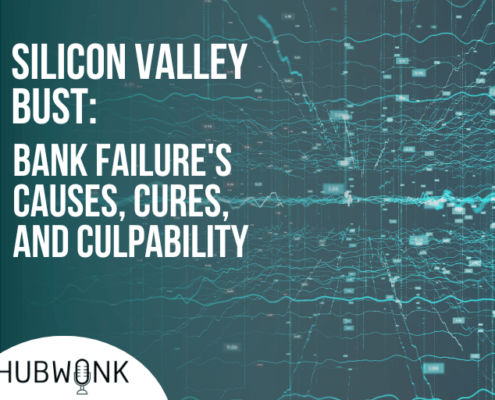
Silicon Valley Bust: Bank Failure’s Causes, Cures, and Culpability
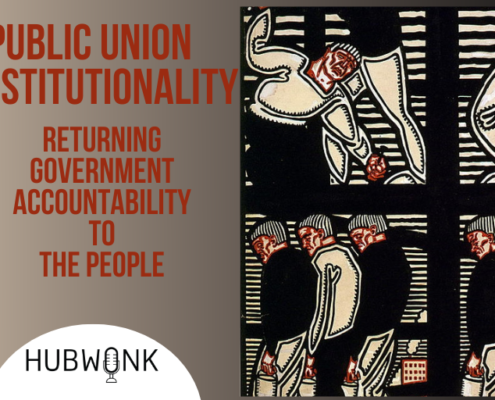
Public Union Constitutionality: Returning Government Accountability to the People
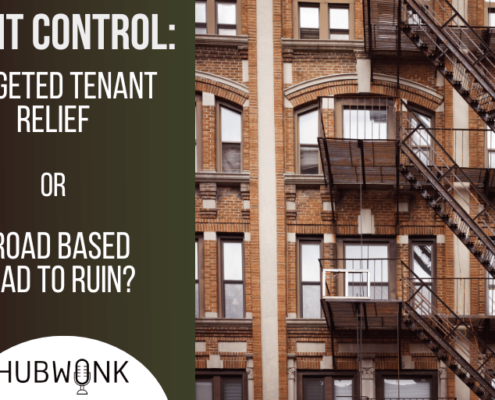
Realizing Rent Control: Targeted Tenant Relief or Broad-Based Road to Ruin
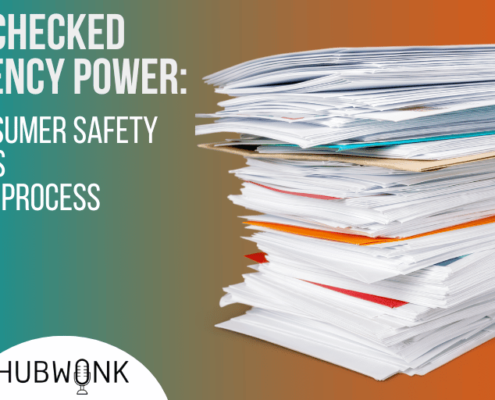
Unchecked Agency Power: Consumer Safety Bans Fair Process
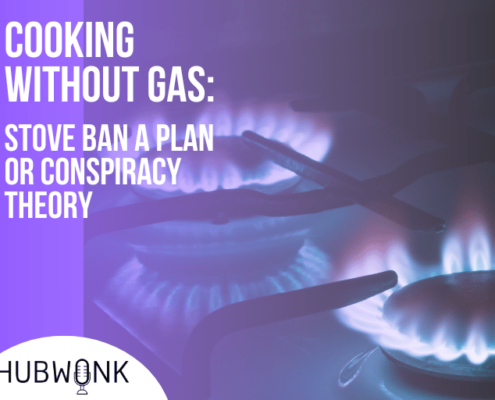
Cooking Without Gas: Stove Ban a Plan or Conspiracy Theory

Innovation Reduction Act: Price Controls’ Prescription for New Therapies

Residents Rescuing Refugees: Welcoming Ukrainians Yearning To Breathe Free

